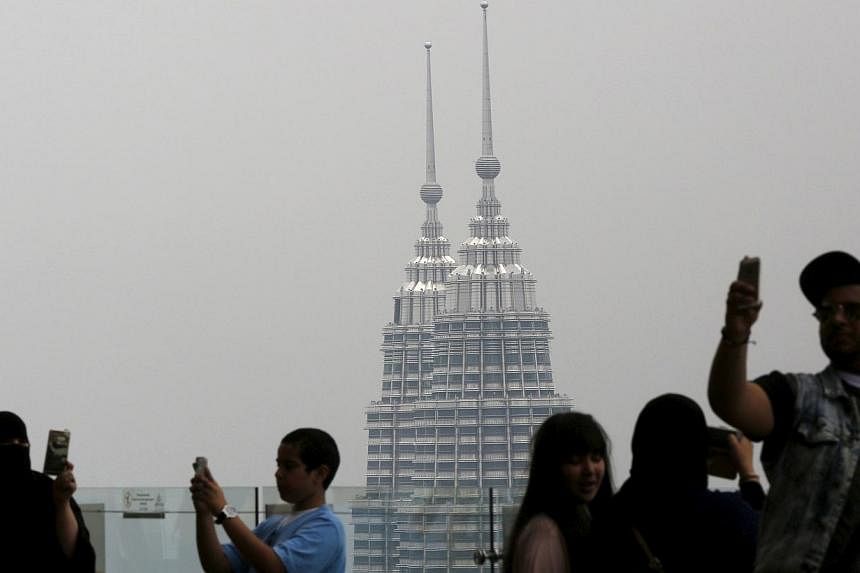Malaysia's 11th and final 5-year economic plan leading up to its target of being a developed nation in 2020 aims to balance the government budget but still see 5-6 per cent annual economic growth through a 20-per-cent rise in labour productivity.
This will see gross per capita income hit RM54,000 (S$20,024) - meeting the high-income nation benchmark - with the average household income rising to RM10,540 per month, doubling the figure in just eight years.
The 11th Malaysia Plan (11MP), tabled in parliament by Prime Minister Najib Razak on Thursday, will also see the shape of the economy changing, with oil and gas expected to make up just 15.5 per cent of government revenue in 2020, compared to 21.5 per cent now.
The manufacturing and services sectors are expected to make up three-quarters of the economy, helping to boost takings from the newly-introduced Goods and Services Tax to RM31 billion by 2020, double that of the defunct Sales and Services Tax last year.
"We foresee greater volatility and uncertainty in the global economy as a result of the decline in oil prices, realignment of exchange rates, as well as geopolitical risks.
"In order to sustain our growth momentum and ensure that the people continue to prosper, we need to forge ahead with greater resolve and introduce bold measures for the long-term benefit of all Malaysians," Datuk Seri Najib said in the foreword to the blueprint.
Infrastructure projects, including rural roads and the highly anticipated MRT in the Klang Valley, are expected to increase productivity.
Malaysia also wants to narrow the income gap, reducing the Gini coefficient from 0.401 to 0.385 with wages making up 40 per cent of GDP as compared to 34.9 per cent currently.
The government plans to increase the education and skills level of the bottom 40 per cent (B40) of households. For example, it wants 20 per cent to have tertiary education as compared to just 9 per cent last year. This, it said, will double the average household income of the B40 to RM5,270 in five years.

